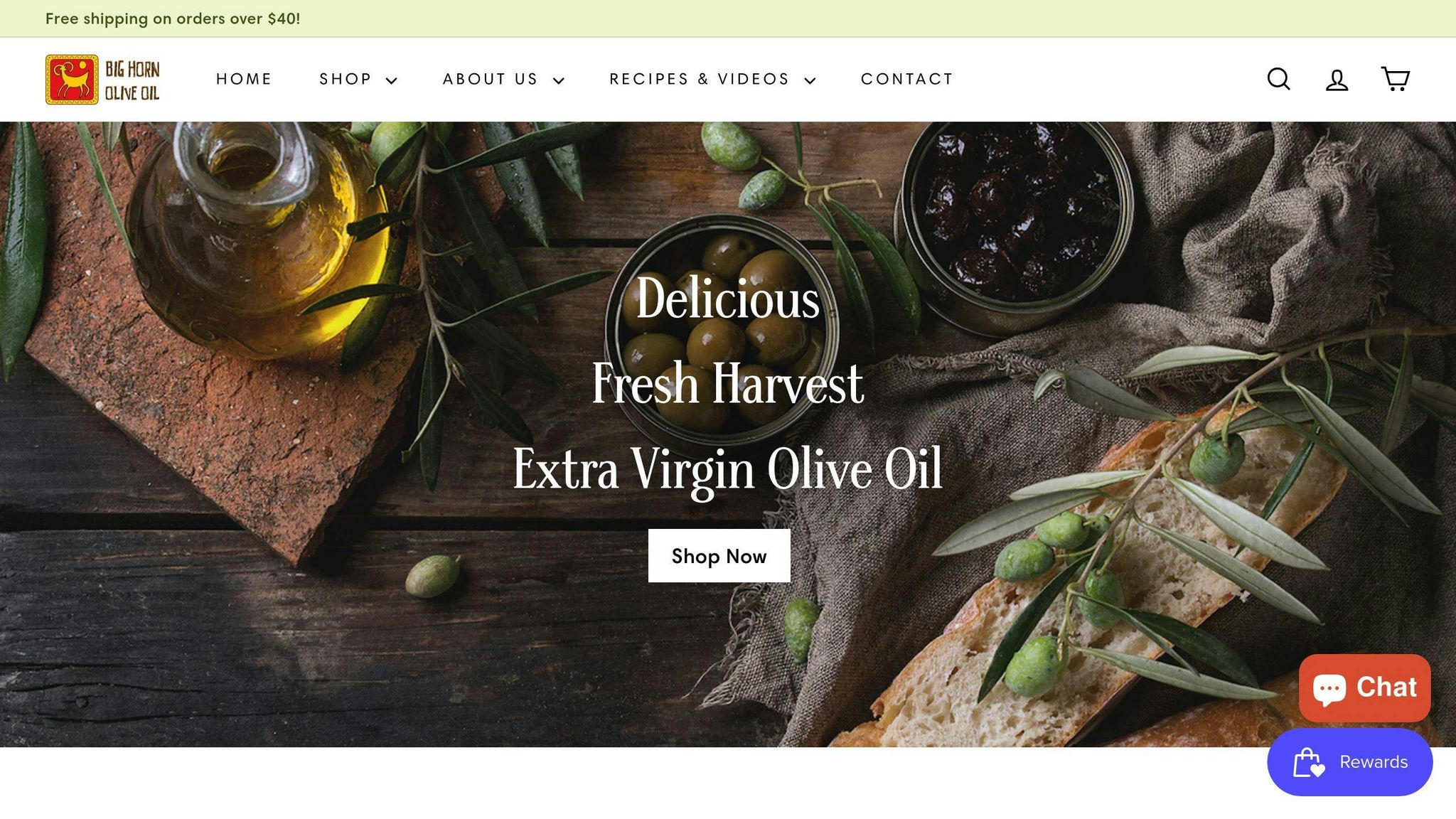Cooking Vegetables in Olive Oil: Nutrient Benefits Explained
Cooking vegetables with extra virgin olive oil (EVOO) is one of the best ways to preserve and even boost their nutrients. Unlike boiling, which can destroy up to 60% of vitamins like B and C, sautéing in olive oil retains up to 90% of these nutrients and enhances absorption of fat-soluble vitamins (A, D, E, and K). EVOO also improves the bioavailability of antioxidants like carotenoids and lycopene - cooking tomatoes in olive oil, for example, increases lycopene absorption by 80%. Here's why this method works:
- Preserves delicate vitamins better than boiling or microwaving.
- Boosts nutrient absorption with the help of healthy fats.
- Adds antioxidants from EVOO itself to your vegetables.
For maximum benefits, use high-quality EVOO, cook at moderate heat, and keep cooking times short. This method combines great taste with better nutrition, making it a simple way to get the most out of your vegetables.
Cooking with Olive Oil: What You Need to Know
How Olive Oil Helps Keep and Improve Nutrients
Boosting Absorption of Fat-Soluble Vitamins
Cooking vegetables with olive oil can improve how your body absorbs fat-soluble vitamins like A, D, E, and K. This is because olive oil acts as a natural carrier, helping these nutrients get into your system more effectively. Extra virgin olive oil (EVOO) also brings its own phenols and antioxidants into the mix, which can further enhance the nutritional value of your vegetables. These compounds even help protect delicate vitamins from breaking down during cooking .
Making Carotenoids and Lycopene Easier to Absorb
Olive oil plays a key role in increasing the absorption of nutrients like carotenoids and lycopene. For instance, cooking tomatoes with olive oil can raise lycopene levels by 80%, while beta-carotene absorption becomes 6.5 times higher compared to eating raw vegetables. The oil essentially "unlocks" these nutrients, allowing your body to get more out of them.
What's more, olive oil's antioxidants shield these nutrients during the cooking process, keeping them available for your body to use. This combination of olive oil's protective qualities and the natural nutrients in vegetables makes for a powerful duo. Compared to methods like steaming or boiling, cooking with olive oil ensures you get the most nutritional value possible.
sbb-itb-4066b8e
Comparing Cooking Methods for Keeping Nutrients
How Steaming, Boiling, and Microwaving Compare
The way you cook vegetables can greatly affect their nutrient content. Steaming, for example, is a gentler option that minimizes vitamin C loss to just 9-15%, making it a solid choice for preserving water-soluble vitamins. Boiling, on the other hand, is much harsher, with nutrient losses reaching up to 60% for B vitamins like thiamine and niacin. Microwaving falls somewhere in between, retaining more nutrients than boiling but still leading to a 20-30% loss of vitamin C in green vegetables.
| Cooking Method | Nutrient Impact | Best For |
|---|---|---|
| Steaming | Minimal loss (9-15% vitamin C) | Leafy greens, broccoli |
| Boiling | High loss (up to 60%) | Root vegetables (when nutrients aren't the focus) |
| Microwaving | Moderate loss (20-30% vitamin C) | Fast cooking with reasonable nutrient retention |
Each method has its pros and cons, but sautéing in olive oil offers a unique combination of nutrient retention and added benefits.
Why Sautéing Vegetables in Olive Oil Works Well
Sautéing in olive oil stands out because it not only preserves nutrients but also improves their absorption. Extra virgin olive oil (EVOO) acts as a carrier, helping your body absorb nutrients like beta-carotene and lycopene more effectively. Plus, the oil itself adds beneficial compounds.
To get the most out of this method, follow these tips:
- Use moderate heat to avoid breaking down nutrients.
- Keep cooking times short to protect delicate vitamins.
- Opt for high-quality EVOO to benefit from its antioxidants.
The combination of proper technique and quality ingredients makes this method both practical and nutritious.
Picking the Right Olive Oil for Cooking Vegetables
Why Extra Virgin Olive Oil Works Best
If you're cooking vegetables, extra virgin olive oil (EVOO) is an excellent choice. It helps retain and amplify the nutrients in your veggies. Thanks to its low acidity and high antioxidant levels, EVOO supports nutrient preservation during cooking.
For example, cooking carrots in EVOO can boost beta-carotene absorption by up to 6.5 times, while tomatoes see an 80% increase in lycopene. To get the most out of your EVOO, look for options with low acidity (below 0.8%), recent harvest dates (within the past year), dark glass bottles for better storage, and cold-pressed processing to maintain its beneficial properties.
Find Premium Olive Oil at Big Horn Olive Oil

Big Horn Olive Oil offers Ultra Premium EVOOs that are perfect for cooking nutrient-packed meals. Their oils are cold-pressed shortly after harvesting, ensuring they retain their antioxidants and nutrients. You'll find a variety of flavorful options designed to enhance both the taste and nutritional value of your vegetables.
Using top-quality EVOO doesn’t just make your meals more delicious - it also helps you get the most nutrients out of your cooking.
Conclusion
Key Takeaways
Cooking vegetables with extra virgin olive oil (EVOO) has been shown to improve the absorption and retention of nutrients. EVOO not only transfers its antioxidants to the vegetables but also enhances their overall nutritional value. For instance, cooking tomatoes in EVOO can boost lycopene absorption by 80%. Additionally, vegetables retain up to 100% of their minerals and 70-90% of B vitamins when sautéed in EVOO - far better than boiling.
To make the most of cooking with EVOO, follow these tips:
- Use high-quality EVOO and store it in dark glass bottles to preserve its properties.
- Cook at medium heat to maintain the integrity of sensitive nutrients.
- Opt for sautéing instead of boiling to maximize nutrient retention and absorption.

